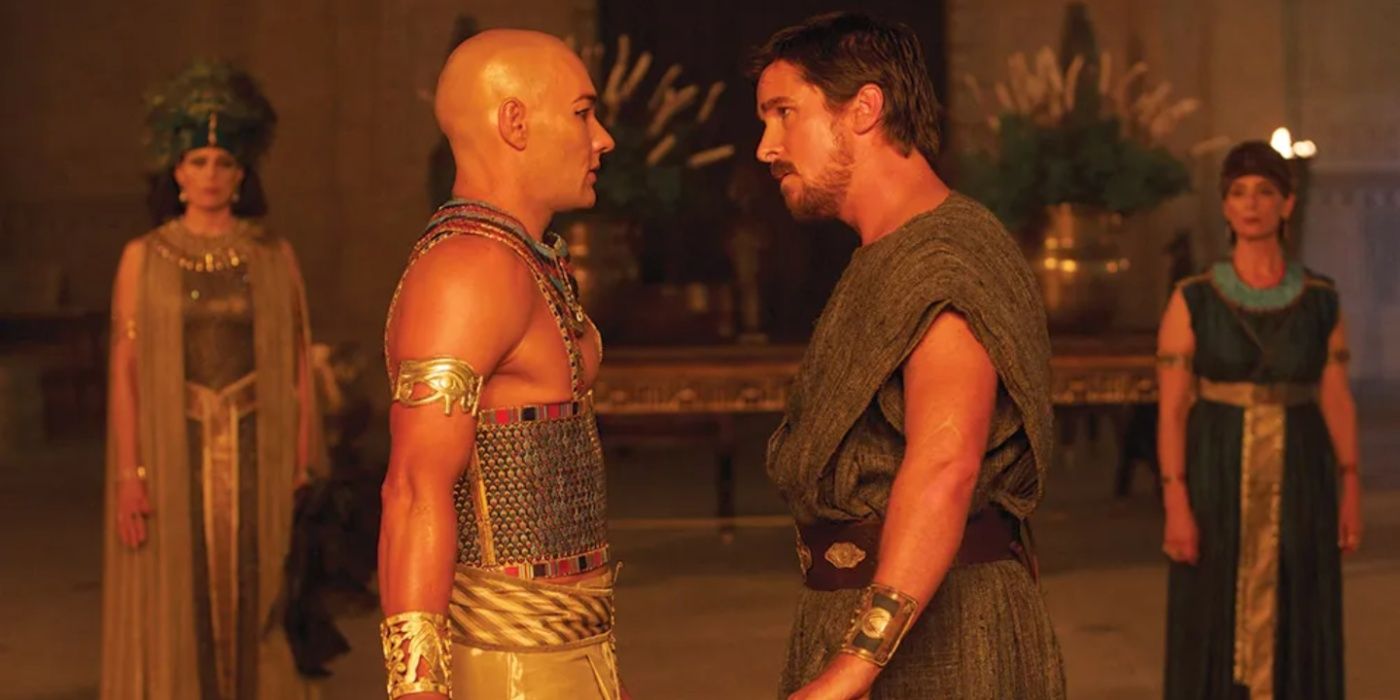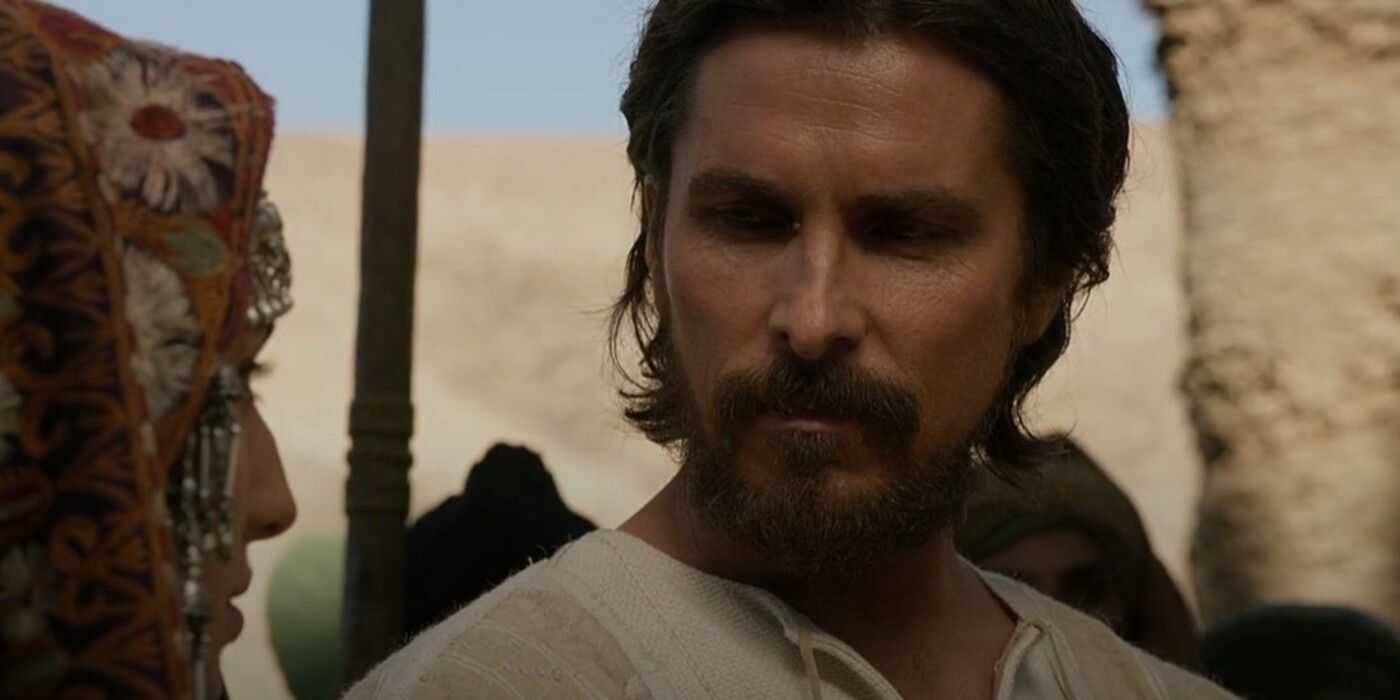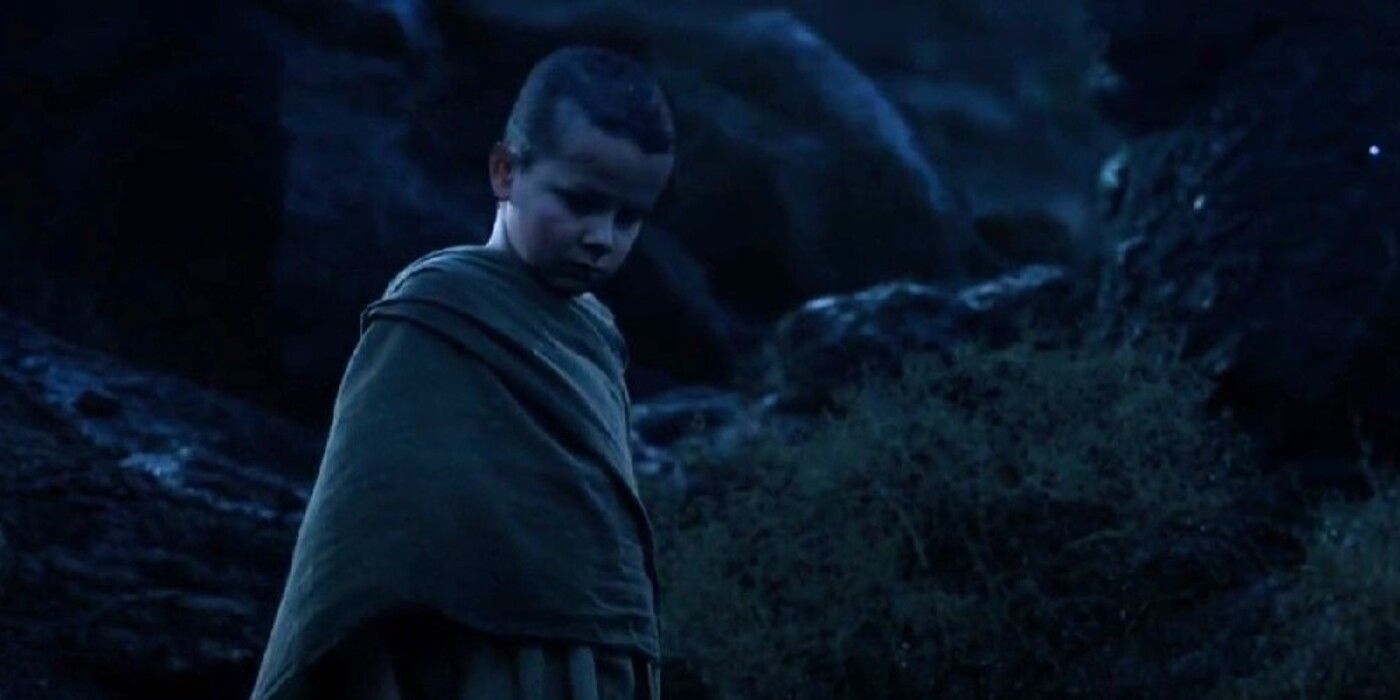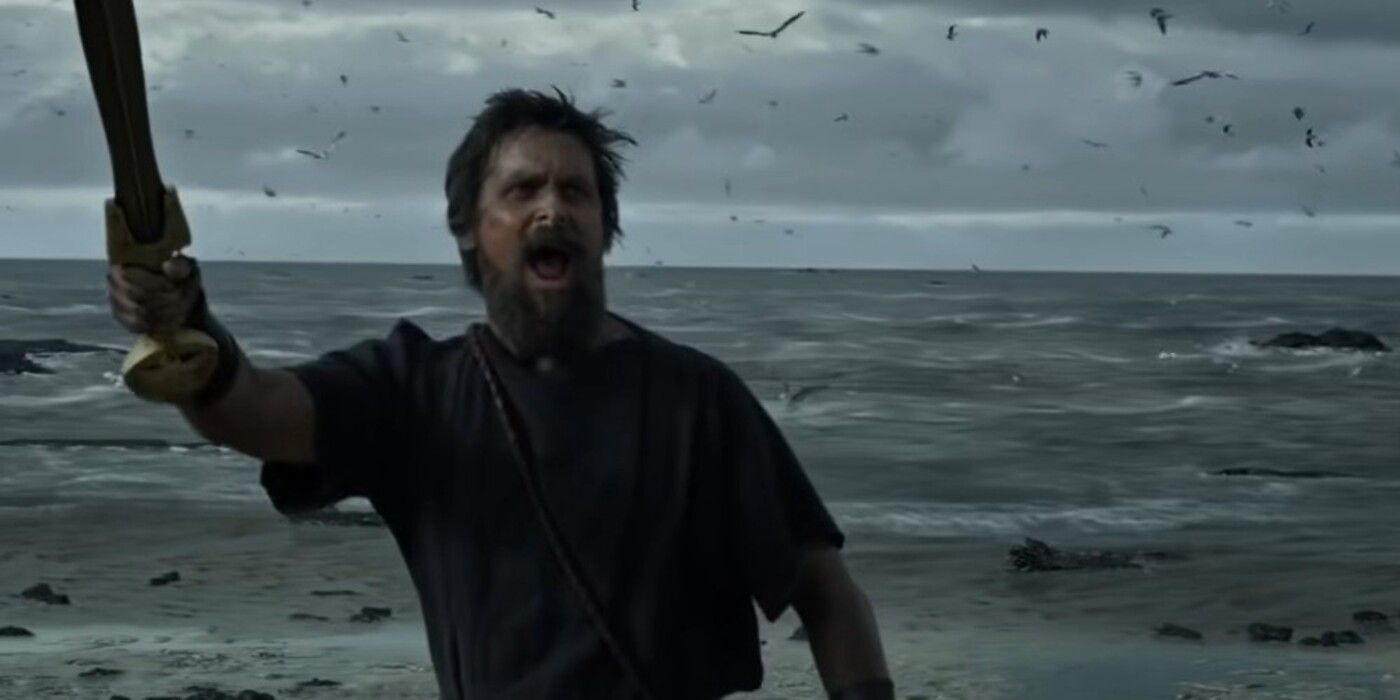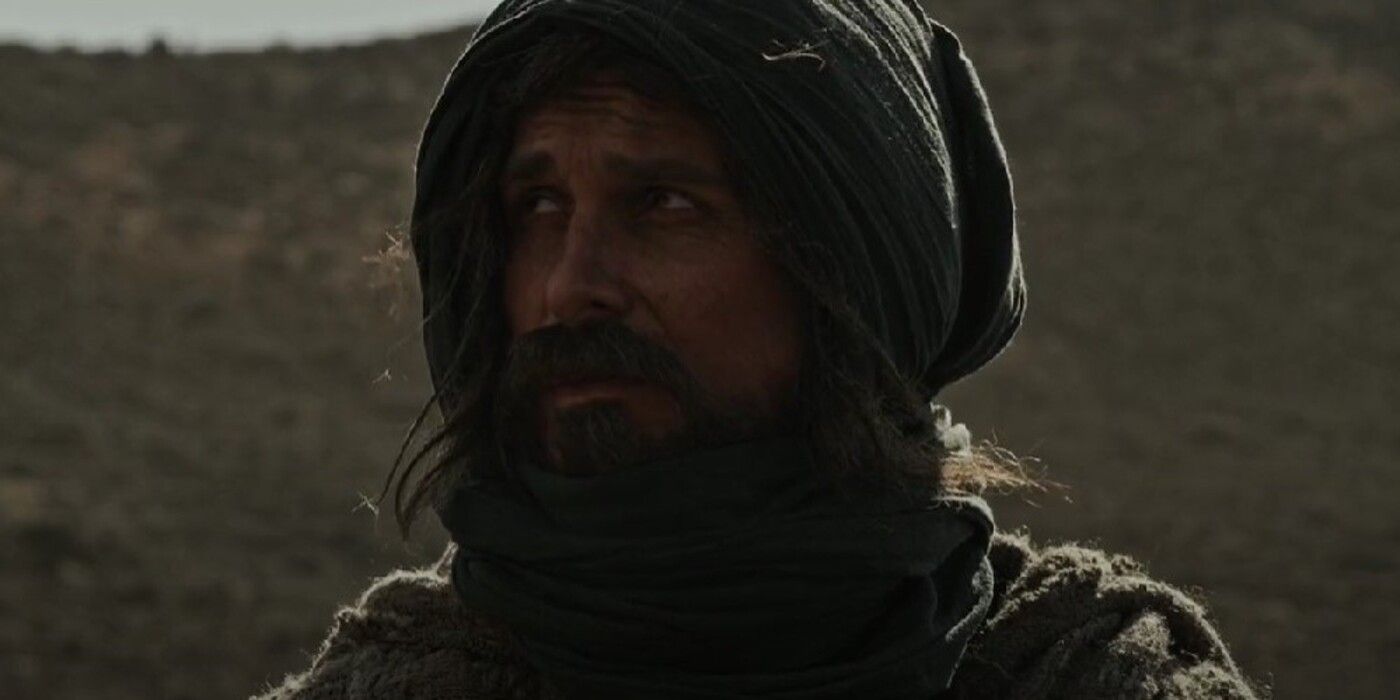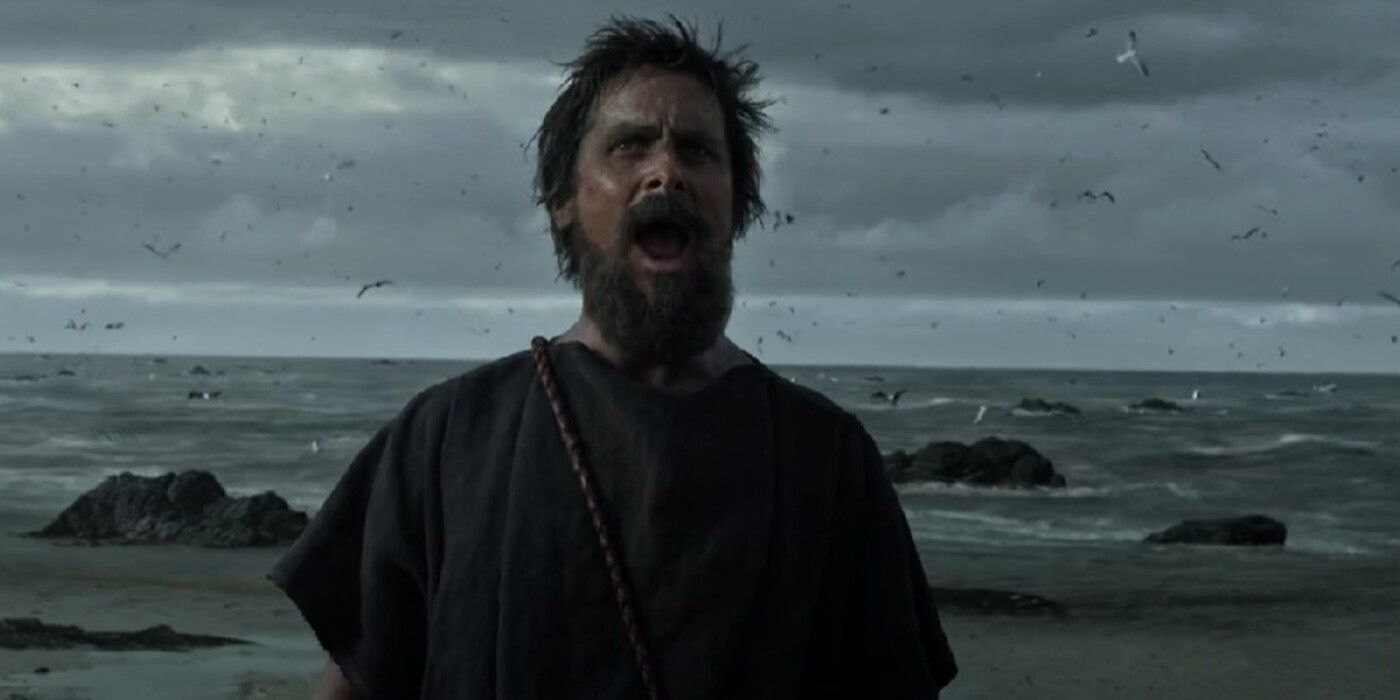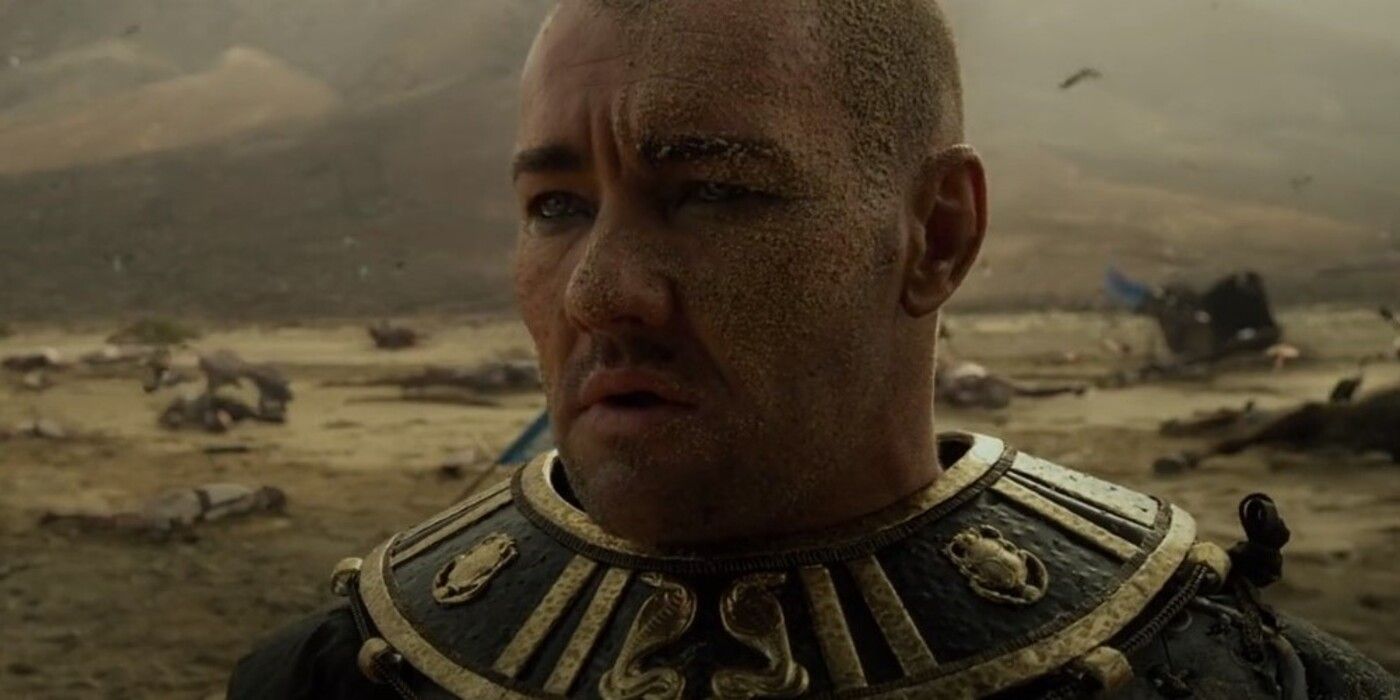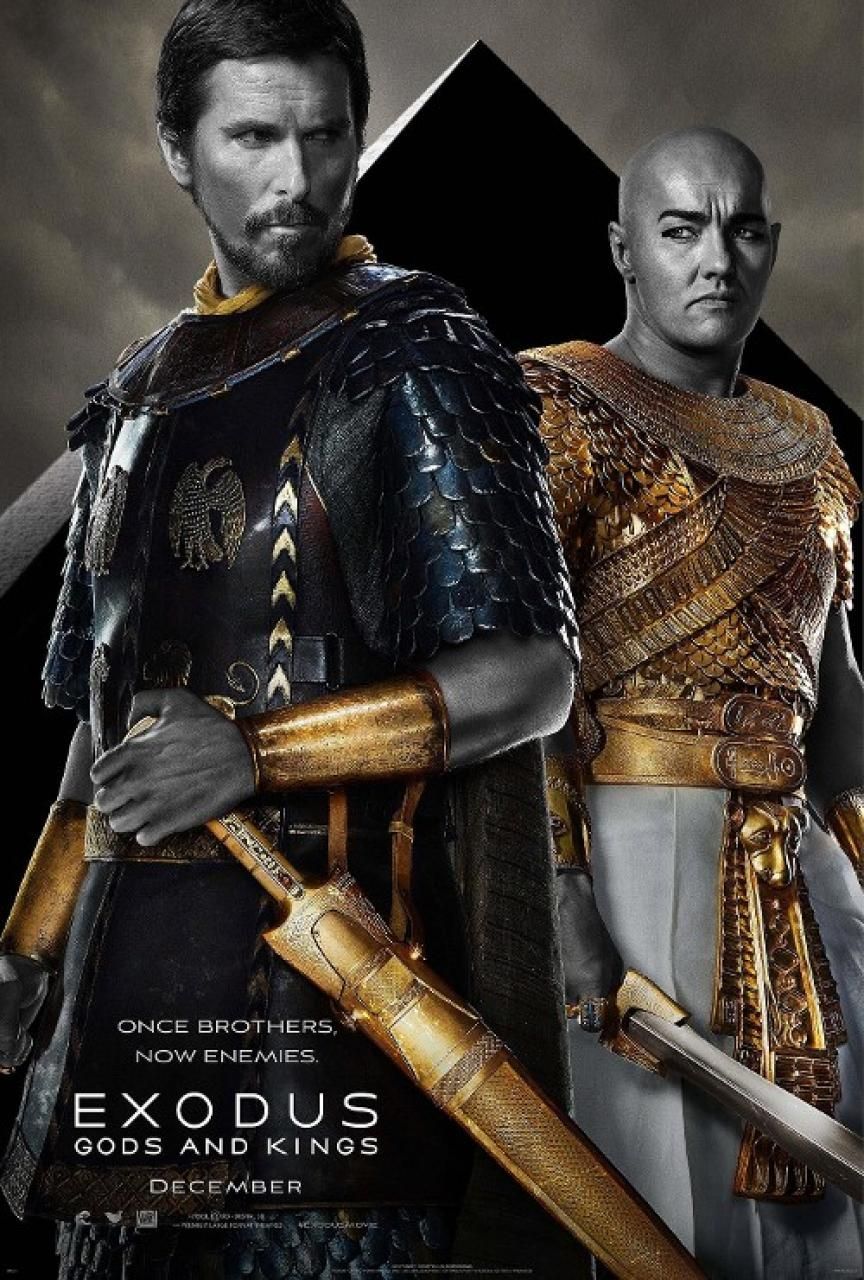Summary
- Ridley Scott’s film Exodus: Gods and Kings made significant changes to the biblical story, leading to criticism from Christian groups.
- The film was criticized for its inaccurately whitewashed cast, with mainly white actors playing characters in Ancient Egypt.
- Moses was portrayed as a more active freedom fighter in the film, deviating from the biblical depiction of him as a messenger of God.
The biblical epic Exodus: Gods and Kings accuracy was questioned when Ridley Scott made significant changes from the book of the Bible it was based on. As a director who has repeatedly dismissed concerns about accuracy, Scott has been more concerned with providing an entertaining film than he has been with rigidly adhering to the expected retelling of events. While this makes for a more exciting big-budget spectacle in his 2014 movie Exodus: Gods and Kings, it also led to criticism from Christian groups who felt the agnostic director was veering too far away from the original story.
Exodus: Gods and Kings found a new audience on Netflix, and it is the perfect time to look back on all the changes the film made from the biblical story of Exodus. With significant changes to the life story and character traitors of Moses, a different interpretation of how to depict God, and even a newly added crocodile plague, Exodus: Gods and Kings leaned more heavily into its role as a Hollywood action epic than it did a subdued biblical lesson. In doing so, Exodus: Gods and Kings made lots of changes to the original biblical story.
Source
The 30 Most-Watched Netflix Movies Of All Time
Between action-packed adventures, dramas, and comedies — all of which star A-list actors —, here are Netflix’s most-watched movies of all time.
10 The Biblical Story Was Much More Diverse
Exodus: Gods And Kings Was Criticized For Its Biblically Inaccurate Whitewashed Cast
Exodus: God And Kings featured Christian Bale as Moses, Joel Edgerton as Ramses II, and Aaron Paul as Joshua, and an extended cast of mainly white actors. The 1300 BC Egyptian setting of Exodus meant that this casting was neither Biblically nor historically accurate and director Ridley Scott received criticism over perceived whitewashing at the time of release. In an interview with Variety, Scott gave a controversial and blunt response to the issue stating the film would not receive financing if the lead actor were “Mohammad so-and-so from such-and-such.”
He also said the question of casting non-white actors “never came up.” While it sounds like a very tactless response, the main reason that Scott cast almost all white actors in roles was that he needed big names for the movie to get the money to make it. Christian Bale’s name helped sell the movie to investors and got it off the ground. However, this is one Exodus: Gods And Kings accuracy problem that might have actually hurt the movie’s success at the box office.
9 Moses Had No Rival Pharaoh Brother
Exodus: God And Kings Added A Sibling Rivalry
Ridley Scott’s version of Exodus positioned the real historical pharaoh Ramses II as the adopted brother of Moses, who was found as a baby and accepted into the Egyptian royal family. However, the Biblical story states that Moses was the son of an unnamed Pharaoh’s daughter, and, had he grown up in the time of Ramses, that would have made him Moses’ uncle (via Exodus 2).
The version depicted in Exodus made for a much more compelling narrative and added a sibling rivalry dimension to the film that was absent from the Biblical story. Moses did have a brother in the Bible in the prophet and high priest Aaron, as well as a sister named Miriam. It was Aaron, in the Bible, who stood as Moses’s spokesman when he approached the Pharoah in the Bible. However, making the Pharaoh Moses’s brother, it did create movie tension.
8 Moses Was A Lover Not A Fighter
Exodus: Gods And Kings Showcased Moses As A Far More Active Revolutionary
In the biblical story of Exodus, Moses was a messenger of God and carried out his wishes without actively pursuing bloodshed. However, when Exodus: Gods and Kings was released there was concern that Moses was being envisioned as less of a messenger and more of a freedom fighter. Actor Christian Bale controversially described Moses as “a terrorist in terms of the Egyptian empire” and if he were alive today “drones would be sent after him” (via ABC News.)
While scenes showcasing Moses leading guerrilla fighters against Egyptians may not have been Biblically accurate, they certainly upped the tension in Exodus. Moses did have some aggressive moments in the Bible, including killing an Egyptian overlord, but he mostly attempted to create laws and rules for people to live by in peace and never wanted to do more fighting after that one brutal murder, as he wanted to honor God and not kill.
7 God Speaks Through The Burning Bush Not The Boy
Exodus: Gods And Kings Depicted God Not As A Burning Bush But As A Young Schoolboy
In Exodus: Gods and Kings, God was portrayed by an 11-year-old English schoolboy named Isaac Andrews, which was a lot different from the biblical story of God speaking to Moses through a burning bush. While the bush does appear in the film, director Ridley Scott chose to have the young boy named Malak (Hebrew for angel or messenger) do the talking. Ridley Scott explained this change himself (via The Independent).
“Sacred texts give no specific depiction of God, so for centuries artists and filmmakers have had to choose their own visual depiction. Malak exudes innocence and purity, and those two qualities are extremely powerful.”
This is something that has changed many times over the years. In The Ten Commandments starring Charlton Heston as Moses, director Cecil B. De Mille chose to have God issue the stone tablets through a burning bush. For Scott, just because it is a child’s voice does not mean it isn’t God talking through that voice.
6 Moses Wielded A Staff And Not A Sword
Exodus: Gods And Kings Did Not Depict Moses With His Signature Walking Stick
The classic depiction of Moses has always had him holding his signature staff. This was more than just an artistic choice and was mentioned in Exodus 4:2 when God asked Moses what he was holding, and he replied, “A staff.” But in Exodus: God and Kings this iconic staff was nowhere to be seen and instead, Moses wielded an Egyptian sword during the climax of the film at the parting of the Red Sea.
Omissions such as these demonstrated how significantly director Ridley Scott strayed from the biblical version of this story. There is a reason that Moses held a sword instead of a staff during this moment because Moses knew he was at war for his people. However, as with his penchant for fighting more in the movie than he did in the Bible, this created a bigger moment on the screen as it showed that Moses was fighting for freedom and the sword signified that belief.
5 The Hebrews Fled For A Different Reason
Exodus: Gods And Kings Changd The Reason Moses Fled Egypt
In the Biblical story of Exodus, Moses murdered an Egyptian man who had been attacking a Hebrew slave. Once his crime became known, Moses fled Egypt and the grand exodus of the story was set in motion. In Exodus: Gods and Kings, Moses still murdered an Egyptian, but this was not why he fled Egypt. Instead, Moses was forced to flee when the Pharaoh Ramses II suspected that he was born Hebrew and may be the one prophesied to lead his people out of Egypt.
This created conflict in the new fictional storyline of Ramses and Moses being brothers. While it was still loyal to the Bible stories of Moses fleeing Egypt and trying to lead his people to God and away from danger, the brotherly storylines made this change a smart one for Scott to make. If this movie is about two brothers, then it makes sense for Moses’s murder not to be the catalyst for his departure because this allowed his brother to cast him out instead.
4 Moses Was Slow Of Speech And Tongue
Exodus: Gods And Kings Portrayed Moses As A Talented Orator Who Inspired His People With Speeches
Christian Bale as Moses gave rousing speeches to the fleeing Hebrews at the Red Sea in Exodus: Gods and Kings. However, in the Biblical story, Moses was described as a much quieter man who was “slow of speech and tongue” (Exodus 4:10). He would not have been one to address large crowds in the fashion portrayed in the film. While the story of Moses as a meek man portrayed in the Bible makes for a humble characterization in the text, the story of a quiet man sheepishly carrying out God’s wishes would have made for a much less compelling film.
Much like Ridley Scott casting a mostly white cast to sell the movie to investors, he also needed to make sure his lead character was someone who acted like a leader. Even Charlton Heston was a smart man when he played Moses, as the movies need a lead character who can lead his people to safety with his words as much as his actions.
3 The Crocodile Plague Was Not In The Bible
Exodus: Gods And Kings Portrayed This Plague In A More Cinematic Nature
The Biblical Plagues of Egypt are significantly reimagined in Exodus: Gods and Kings, with a crocodile attack gnawing on the fisherman and turning the sea red with blood being one of the film’s most outright changes. In the Bible, Moses stuck his staff into the water of the Nile and transformed the water into blood (via Exodus 7:20). However, director Ridley Scott said he was instead inspired by National Geographic “where I’d seen a frenzy of crocs going after some poor buffalo” (via New York Times).
In the Bible, the plagues included frogs, flies, lice, livestock pestilence, boils, hail, locusts, darkness, and the death of the firstborn children. However, the water turning into blood was made more visceral thanks to the crocodiles. It was less mysterious, but crocodiles fit just as well as frogs, locusts, and other creatures big and small infecting the land.
2 The Parting Of The Red Sea Was A Miracle Not A Tsunami
Exodus: Gods And Kings Looked To Science To Explain The Parting Of The Red Sea
One of the most controversial biblical changes Exodus: Gods and Kings made was related to the parting of the Red Sea. In the original story, under God’s command, Moses held his staff and the water parted for the Israelites to walk through (Exodus 14:21 & 22). However, director Ridley Scott stated in his version the parting was caused by a tsunami and provided a scientific explanation rather than a religious one (via LA Times). This seems to go against Moses proving God’s wrath since it was not a mysterious event.
Exodus: Gods and Kings visual effects’ supervisor Peter Chiang said this change allowed for “the spectacle of this 180-foot wave” in the film (via USA Today). Despite the change, this was a money shot for Scott, who said his goal was to deliver something that had people talking in the end. “I was going to hold back on the wave. But I feel, if you’ve got it, show it,” Scott said. “So I am not being shy about it.”
1 Ramses II Should Not Have Survived The Wrath Of The Sea
Exodus: Gods And Kings Left Ramses Alive On The Beach
After the parting of the Red Sea in Exodus: Gods and Kings, the majority of the Egyptians are killed by the wrath of the ocean. However, Ramses was still seen alive on the beach, forced to bear witness to the destruction of his army. This was not Biblically accurate as Exodus 14:27 – 28 stated: “God dumped the Egyptians in the middle of the sea. The waters returned, drowning the chariots and riders of Pharaoh’s army that had chased after Israel into the sea. Not one of them survived.”
This leaves very little room to interpret the Pharoah as still alive. It is really unclear why Ridley Scott chose to allow Ramses to live in the movie. While he died in the Bible, it all ended with him watching his army destroyed, and it might just be Ramses’ view that Moses survived and his military died which shows that someone knows God helped Moses depart his wrath. Outside of that, Ramses II as the sole survivor serves no other purpose in Exodus: Gods and Kings.
